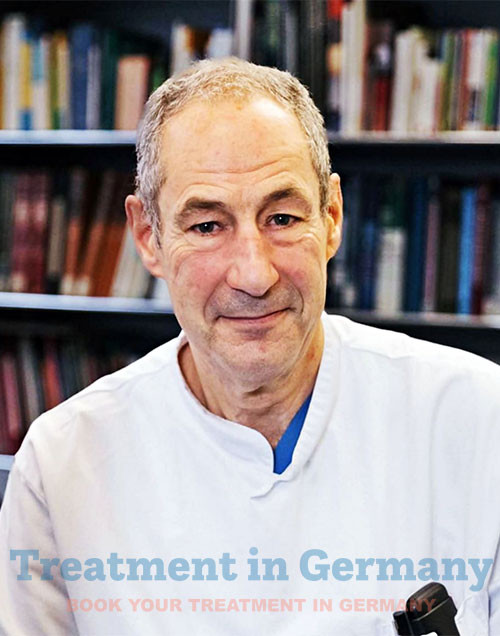A branch of medicine called pediatric cardiology is dedicated to the diagnosis, controlling and management of heart disease in infants, children and adolescents. Pediatric cardiologists are trained to understand the unique aspects of heart disease in young patients who may have congenital (present at birth) or congenital heart disease.
Pediatric cardiology aims to provide comprehensive care that meets the specific needs of children with heart disease and enables them to lead healthy and active lives.
Common Pediatric Cardiac Conditions
Congenital heart defects: Congenital defects of the heart or great blood vessels, such as atrial septal defect, ventricular septal defect, or tetralogy of Fallot.
Cardiomyopathy: Diseases that affect the heart muscle, such as: B. Dilated or hypertrophic cardiomyopathy.
Arrhythmias: Sporadic cardiac rhythms, including ventricular tachycardia or atrial fibrillation.
Heart Failure: Conditions in which the heart is unable to pump enough blood to meet the needs of the body.
Pulmonary hypertension: High blood pressure in the lungs, often due to chronic lung disease or congenital heart defects.
Disease
Heart disease can be broadly divided into congenital and acquired heart disease:
Congenital Heart Disease (CHD):
These are structural defects of the heart that are present at birth and affect the shape, function, or both of the heart. The most common congenital heart defects include:
Tetralogy of Fallot: A combination of four heart diseases that cause deoxygenated blood to flow from the heart to the rest of the body.
Transition of great highways: The two main roads leading out of the heart are reversed.
Atrial septal deformity: A hole in the wall between the two upper chambers of the heart.
Ventricular septal defect: A hole in the wall between the two lower chambers of the heart.
Coarctation of the aorta: Narrowing of the aorta that affects blood flow.
Acquired heart disease:
Type conditions develop after birth and can be caused by infection, disease, or other medical conditions included:
Rheumatic heart disease: Damage to the heart valves after rheumatic fever, often from untreated strep throat or scarlet fever.
Myocarditis: Inflammation of the heart muscle, often caused by a viral infection.
Kawasaki disease: An inflammatory disease that affects blood vessels and can lead to coronary artery aneurysms.
Reasons (Causes and Risk Factors)
Causes of heart disease depend on whether the condition is congenital or acquired:
Congenital Heart Disease:
Maternal Health Conditions: Maternal diabetes or lupus can increase the risk of congenital heart defects.
Environmental Factors: Certain medications, alcohol or drug use during pregnancy can lead to heart problems.
Genetic Factors: Mutations or chromosomal abnormalities (eg, Down syndrome) may increase the risk.
Infections During Pregnancy: Viral infections such as rubella can affect fetal heart development.
Acquired Heart Disease:
Autoimmune Diseases: Conditions such as Kawasaki disease or rheumatic fever can cause heart problems.
Infections: Bacterial, viral or fungal infections can lead to conditions such as myocarditis or infective endocarditis.
Lifestyle Factors: Poor diet, lack of exercise and secondhand smoke can lead to heart disease in children.
Diagnostic
The diagnosing heart disease requires a combination of history, physical examination, and special tests.
Cardiac Catheterization: A catheter is inserted into the heart through the blood vessels to measure pressure and oxygen levels and to visualize the heart's anatomy using contrast medium.
Echocardiogram: Uses ultrasound to create images of the heart to assess structural defects and assess heart function.
History and physical examine: Doctors evaluate symptoms, family history, and previous health problems. They listen for heart murmurs or abnormal heart sounds.
Electrocardiogram: Measures the electrical activity of the heart to detect arrhythmias or other abnormalities.
Pulse Oximetry: Measures oxygen levels in the blood, which can help detect congenital heart defects in newborns.
Chest X-ray: Provides images of the heart, lungs, and chest cavity to help detect heart enlargement or fluid accumulation.
Cardiac MRI: Provides detailed images of heart structure and function, useful in complex congenital heart defects.
Treatment
Treatment of heart disease in children depends on the type and severity of the disease:
Medication:
ACE inhibitors: Lower blood pressure and reduce the workload on the heart.
Beta blockers: Reduce cardiac arrhythmias and improve cardiac function.
Antibiotics: Prevent or treat infections that can affect the heart.
Diuretics: Helps reduce fluid retention in the body.
Lifestyle changes and ongoing care:
Diet and Exercise: Appropriate diet and exercise plans to support heart health.
Regular follow-up examinations: continuous monitoring of cardiac function and growth.
Intervention Procedures:
Stenting: Keeps blood vessels open.
Cardiac Catheterization: Used for both diagnosis and Treatment in Germany, such as B. closing holes in the heart and opening narrowed blood vessels.
Balloon Angioplasty: Widens narrowed blood vessels.
Operation:
Minimally Invasive Surgery: Uses smaller incisions and special instruments for less complicated repairs.
Open heart surgery: required for complex congenital heart defects (eg repair of septal defects, valve replacement).
Heart Transplant:
Severe cases where the heart is too damaged to function properly, a heart transplant may be necessary.
The pediatric cardiology requires a multidisciplinary approach involving cardiologists, pediatricians, surgeons, and other specialists to provide comprehensive care to children with heart disease. Initially detection and treatment can significantly improve outcomes for these children.
Specialist Doctors in Radiologists who use medical imaging techniques (radiology) (exams/tests) such as X-rays, computed tomography, magnetic resonance imaging, nuclear medicine, and positron emission tomography to diagnose injuries and diseases and Expertise in treatment Tomography, and ultrasound.
Unhealthy and smoking diet in particular increases the risk of obesity and physical inactivity in our children and women in general. Women are eight times more likely to die from heart disease than breast or ovarian cancer. Simple and inexpensive interventions that address risk factors can reduce cardiovascular death and disability by more than fifty percent.
Healthy life style and balanced diet can improve or maintain your health and control your weight Even moderate exercise is better than nothing. Try to quit smoking or at least lessen the number of cigarettes you smoke each day. Avoid unnecessary stress. Monitor your blood pressure regularly. Check if you have diabetes. If so, keep it under control and take special precautions. If you feel you are at risk, monitor your cholesterol levels regularly. A comprehensive exam is recommended.
Electrocardiogram is to diagnose heart disease. It measures and records the electrical activity of your heart through small electrode patches that are attached to the skin of your chest, arms, and legs. Electrocardiogram is a quick and painless producer. It measures your heart rhythm, Poor blood flow and other abnormalities. The whole procedure takes10-15 minutes.
Cardiovascular disease are diabetes, hypertension, hyperlipidemia, smoking, family history, obesity and stress, Poor diet, lack of exercise or lupus can increase the risk of congenital heart defects. Following is a brief explanation of all these factors to help create awareness about them.
Experience the difference that expertise and compassion can make. Meet our exceptional team of experienced doctors, and trust us to provide you with the best in healthcare.

Pediatric Cardiology
Director of the Clinic for Congenital Heart Defects - Pediatric Cardiology.
Berlin


.webp)
 (1).webp)

.webp)
 (1).webp)


.webp)
 (1).webp)

.webp)
 (1).webp)
